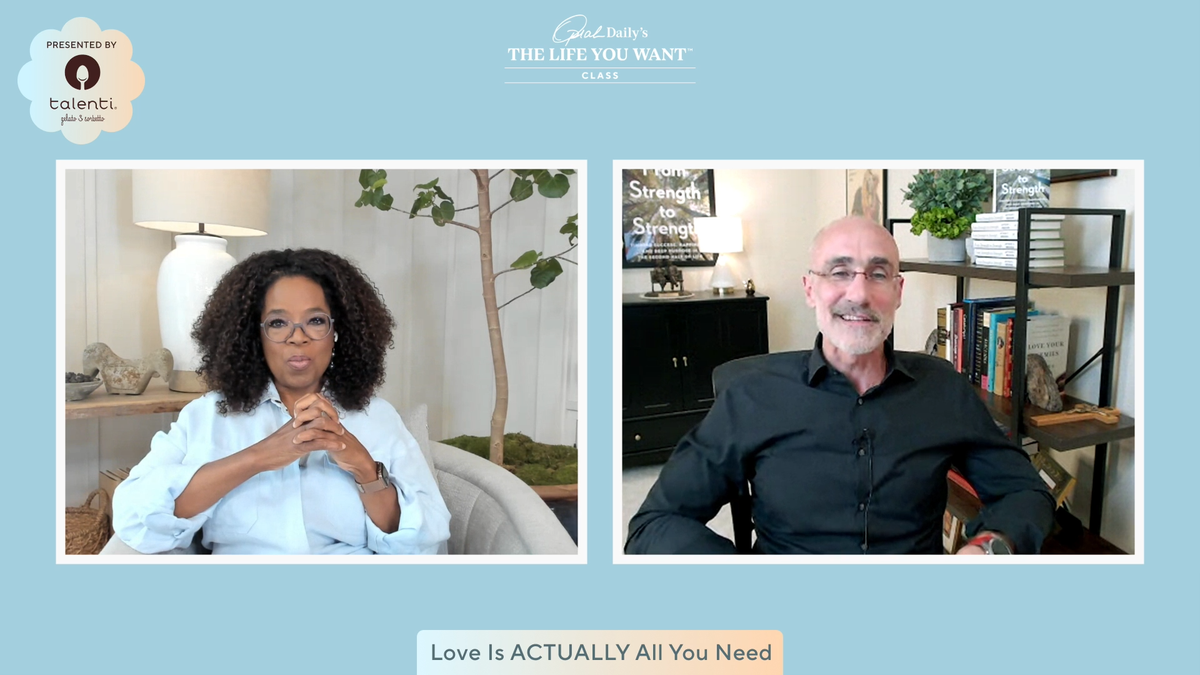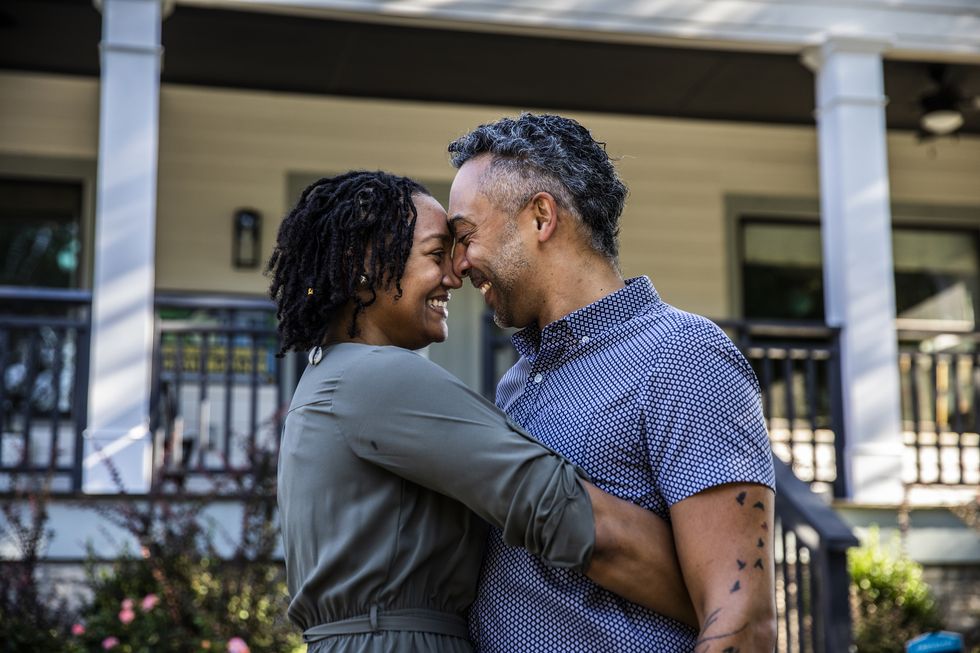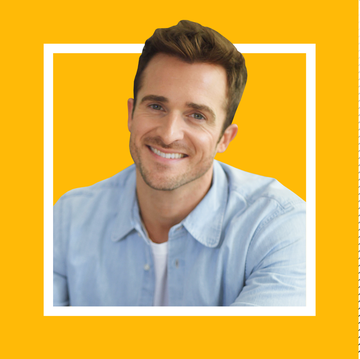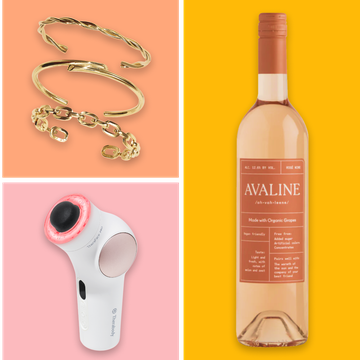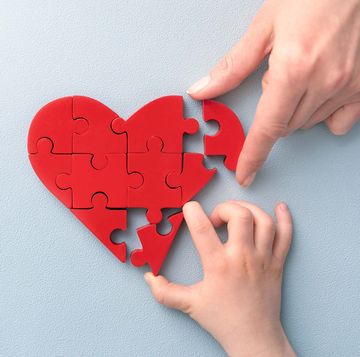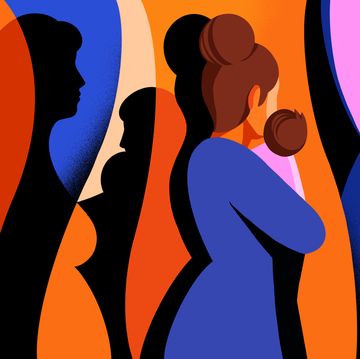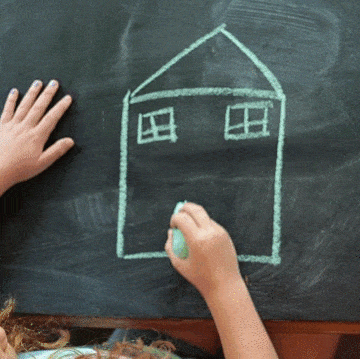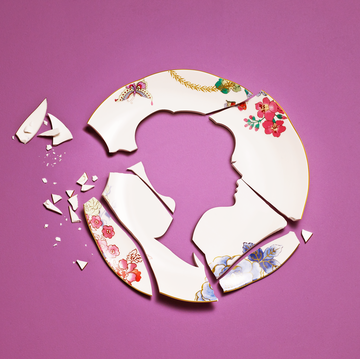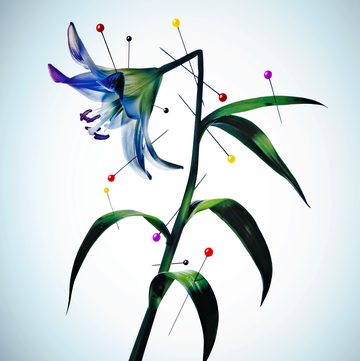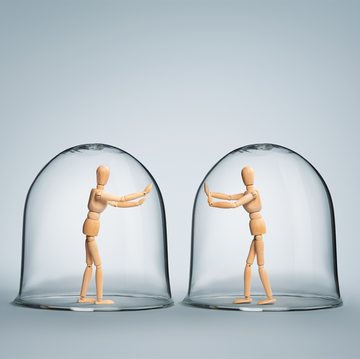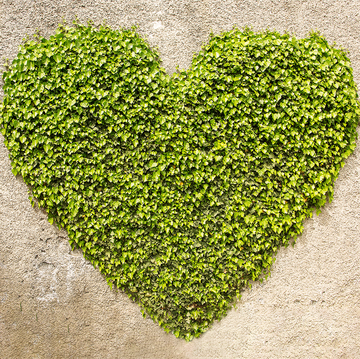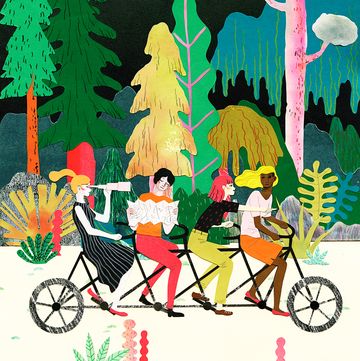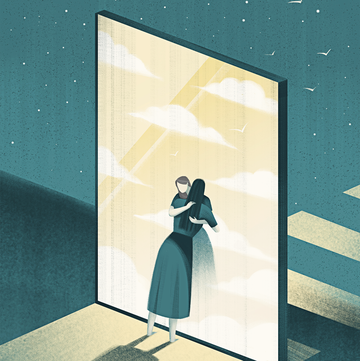There might be no better feeling than that of loving—and being loved. But there are actually different forms of love, including unconditional and conditional love. Learning the difference can be confusing, though, and it's important to know what kinds of love are healthy.
Regardless of the type, love can feel incredible. Parents laying eyes on their child for the first time will surely declare its existence. Countless romantic movies, poems, iconic songs, and bestselling novels are based on it. Couples who are falling for each other or have been happily married for decades often unwaveringly proclaim it. Knowing the difference between the forms of love can help you find healthy connection, too.
Below, we asked experts to unpack what exactly unconditional love is—and whether it's actually doable. Read on to find out if love can really conquer all.
Unconditional love basically means you’re not expecting anything in return.
"It's a matter of extending our non-judgmental attention, acceptance, and caring toward a person without any expectation or hope of receiving anything back, or wanting them to change in order to meet our needs," says John Amodeo, PhD, author of Dancing with Fire: A Mindful Way to Loving Relationships and a licensed marriage and family therapist. "When the happiness and security of another is as real and meaningful to us as our own, we love that person unconditionally," adds Stephen G. Post, PhD, president of the Institute for Research on Unlimited Love. However, the trouble with this ideology is love can be dependent on reciprocal calculations—i.e., you give what you get back and vice versa, Post says.
Okay, but is unconditional love healthy?
It can be, Post says, but to a degree. "This does not imply tolerating hurtful behaviors," he says. "No one should ever be a doormat, because it teaches others treating people that way is okay when it's not." Amodeo agrees, saying that taken to an extreme, the belief that we should remain unconditionally loving could enable a partner who refuses to enter couples counseling or seek personal help for a serious addiction problem. Essentially, it's crucial to take care of yourself first. "Love of self is as important as love of your neighbor," Post says.
Unconditional love can be be good for you.
Love isn't merely some altruistic action or duty, says Post. The unlimited type, especially, has to do with a real warmth that generally includes a sense of joy. This state of emotional being is healthy because, when active, the neurological circuits associated with it turn off the parts of the brain associated with bitterness, hostility, and other destructive emotional states. Those negative vibes can create long-lasting stress and do damage over time to vascular health, says Post.
However, unconditional love kinda goes against human nature.
Loving unconditionally in an adult relationship is a "noble ideal," but it doesn't pass the "reality test," says Amodeo. He compares doing so to complying with a child's plea, no matter how poorly they treat us. Of course, on the other hand, "mature love requires reciprocity," he says. An adult is not a needy child who doesn't know any better.
Amodeo additionally compares his argument to a flower bed, which can only thrive with fertile soil, ample water, and adequate sunshine. In the same way, our relationships can't bloom in a climate of neglect, he says. "There are limits to what we can offer others, because as human beings we're wired to have needs for acceptance, kindness, and intimacy."
Now, don't get us wrong: It can feel good to offer love and be nurturing to someone we care about without expectations of an immediate return. We can't, however, expect to extend ourselves indefinitely if we're not getting enough back or if our kindly expressed needs are continually ignored, Amodeo adds. Doing so can inevitably lead to feelings of depletion or defeat. Know there is absolutely nothing shameful about wanting to meet our basic human longings in our adult relationships.
As with any love, it starts with how we view ourselves.
Ever heard of the idea that the love we accept reflects the love we think we deserve? Let's dig into that as it relates to what unconditional love is. The most effective way to love another person is to be committed to our own personal growth. This includes unconditionally accepting our own authentic feelings or longings and caring enough about ourselves to convey our needs or desires to someone we love, says Amodeo.
"Our way forward is not to pride ourselves on being unconditionally loving, but rather to empower ourselves to learn what it takes to create a lasting, mature love. Rather than striving for selfless love, we can do our part to create conditions for mutual love," he adds.
It varies for parental love and the romantic kind.
When it comes to parental love, it can be unconditional if it's merely a kind of caring, says Aaron Ben-Ze'ev, PhD, the author of The Arc of Love: How Our Romantic Lives Change over Time. However, if love involves two-sided interactions that amplify the growth of the lovers and their relationship, that love is likely conditional, he says.
And no matter what, conflicts must be resolved respectfully.
Emerson Eggerichs, PhD, author of Love & Respect, often challenges couples by saying, "in a conflict, the most mature person moves toward the other to seek forgiveness." Unconditional love means there's nothing your spouse can do to get you to stoop to a level that causes you to be unkind or harsh, according to Eggerichs, who defines unconditional love within the context of marriage.
"Our spouses don't cause us to be the way we are—they reveal who we are," he says. "It's not always easy! Especially if our spouse is being less than mature," adding that his definition of unconditional love doesn't suggest that we applaud or ignore unacceptable behavior. "Unconditional love sometimes means the most loving thing we can do is have a hard conversation" about our partner's pitfalls, he says.
For more ways to live your best life plus all things Oprah, sign up for our newsletter!
Stephanie L. King has had an obsession with words since she was seven and chronicled her life in a red and blue Bugs Bunny diary. She’s a poet who wrote for The Wall Street Journal and The Patriot News in Harrisburg, Pennsylvania, before transitioning careers to become an English Language Arts teacher to talented urban middle schoolers. She’s also the brand new mom to a baby girl named Ella Grace and considers the sweetest fruit of her life her husband, Lionel. The reason for the slob on her pants? Her English bulldog, Ice. She lives in New Jersey, where she’s grateful for parking—but she will always be a New Yorker at heart.
